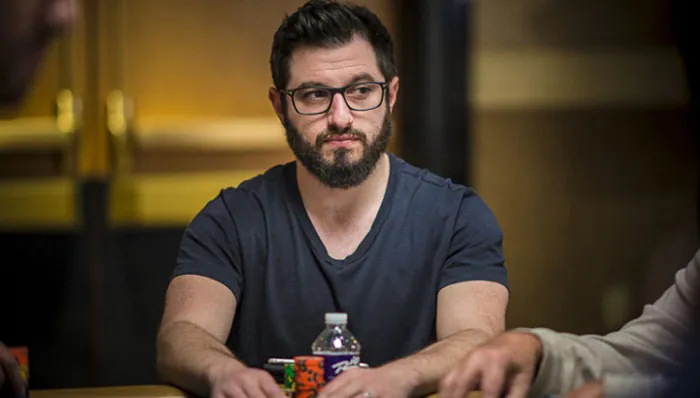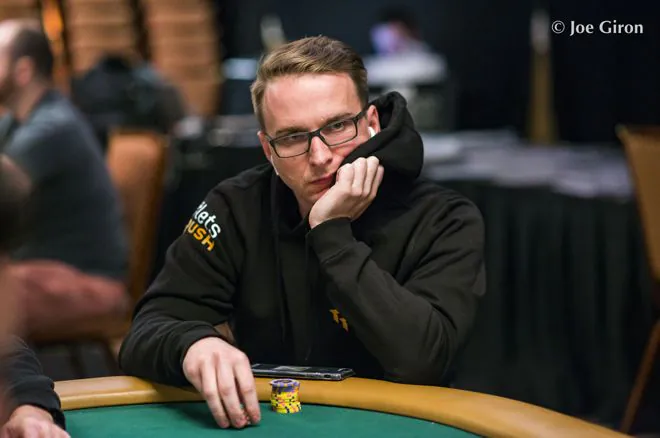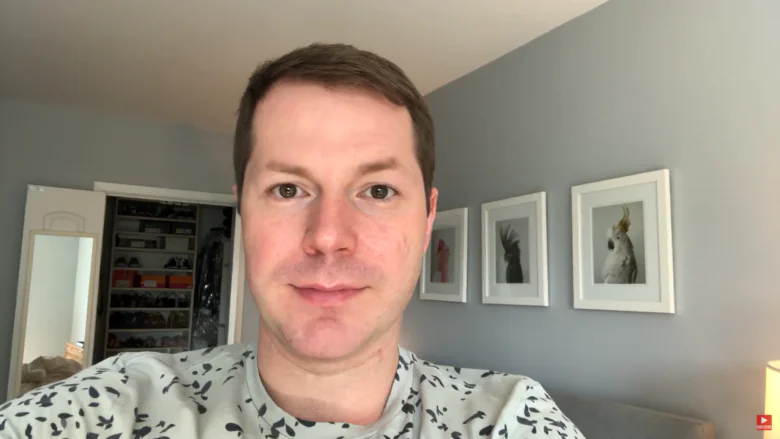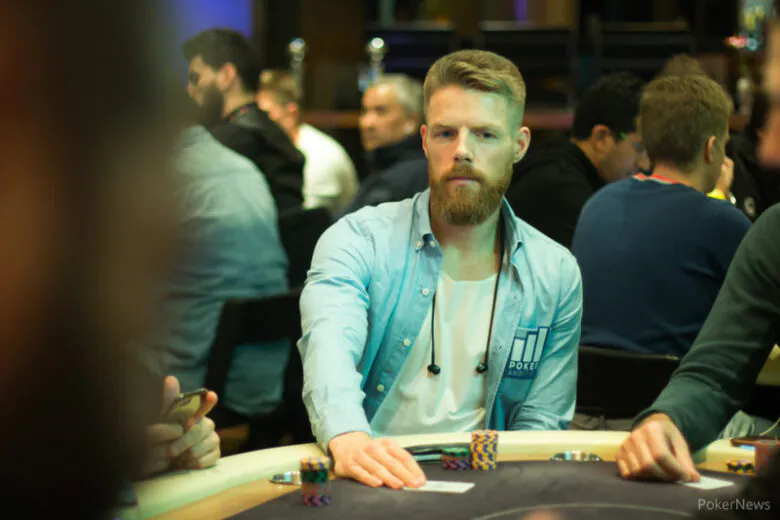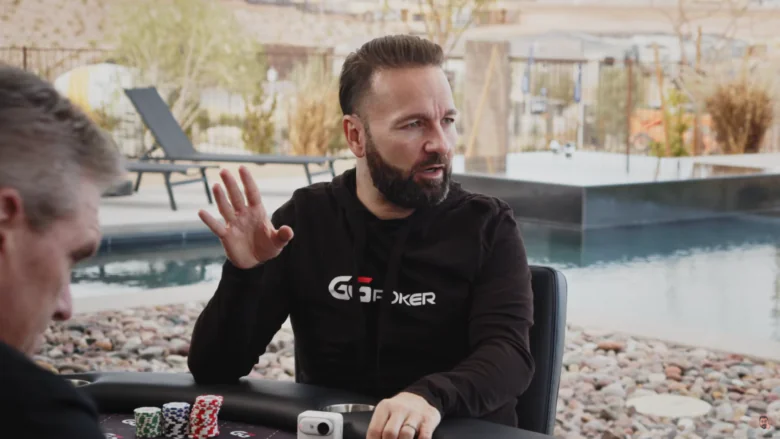How to Boost Your Poker Mindset?

- Fact Checked by: PokerListings
- Last updated on: May 5, 2025 · 7 minutes to read
Mathematics is a vital part of poker. Still, on it own, mathematics won’t bring you much success. For a long and profitable poker journey, players need to build a strong mentality. Even if you’re reading this thinking something like — “I already have a great poker mindset!“— it doesn’t mean you can take it to new heights.
In this article we’re going to present you with five tips from professional poker players and coaches on how to boost your mindset to become even more successful in poker.
#1 Accept a Chance to Not Succeed
Poker is a highly competitive environment where only the most dedicated (and lucky) people reach the top. So, if you’re looking for a chance to make it, you need to be wary of the risks and reasonably evaluate your chances.
There are a lot of aspects that are going to influence your journey — and not all of them are going to be necessarily connected to poker. As Phil Galfond describes on X (Twitter):
Some of us are more volatile than others. Some are more intrinsically motivated.
You can work to improve all of this, but not everyone is going to find the same levels of success with the same amount of work. Some won’t find success at all.
In sum, you should free yourself of a narrow-minded approach to success, opting not to see it as an all or nothing situation at every turn.
Each poker session is already packed with pressure for each player — you don’t need to feed into it with unrealistic expectations. If you can accept that success isn’t guaranteed or entitled, you’ll relieve some of the pressure and thus have a more enjoyable career.
#2 Fix Your Issues Outside of Poker
You can never underestimate how severely your personal life can affect your game. When you take them at face value, these types of statements sound too simple. Still, most of these ideas are based both in professional poker experience and scientific surveys.
In 2022, Benjamin «bencb789» Rolle — who is one of the most ardent advocates of the connection between your lifestyle and poker success — wrote about it on X using the example of his own sleep problems:
"Fighting" Tilt & doing all the things you have read about to develop a strong mindset whilst sleeping poorly is just a waste of ur time.
— bencb (@bencb789) December 31, 2022
I neglected it for too long as well. Sleep is still so heavily underrated. With poor sleep, managing your triggers & emotions is very hard.
Scientific studies support Ben’s conclusions. For example, an article titled The Extraordinary Importance of Sleep stated that sleep problems are proven to affect cognitive performance, including speed and accuracy as well as working memory and susceptibility to stress.
Still, sleep isn’t the only issue you need to consider — the list also includes:
- Relationship with relatives, friends, co-workers and yourself;
- Composition and quality of daily nutrition;
- Uncomfortable work space;
- Habits such as drinking, smoking, fast food, uncontrollable gaming;
- Regular physical activity;
All of the above affect can affect not only your physical health but your mental state as well. An imbalance can lead to increased levels of stress, increased anxiety, at times ever triggering some panic attacks. Even if you can’t necessarily feel their influence during your poker sessions, they are still here — in the background, making your tilt and problems deeper.
Keep in mind that most of these issues can be resolved only with the help of medical professionals. Thus, don’t hesitate to contact them.
#3 Detach Your Emotions From Poker Results
While you can be stress resistant to an extent, can’t you won’t be able to deal with you emotions adequately if you attach your emotional well-being to your poker performance. Truth is, if you start a game counting the money that you haven’t even won or preparing yourself to lose a specific amount — this will notably influence your entire poker session.
With the first scenario, you’ll expect and wait to win a certain amount of money. So, if you see your balance moving away from that sum or you end the session with different results, chances are you’ll feel strong negative emotions leading to a tilt.
In the second situation, you won’t have a solid play if you prepare to lose from the start. So now you’re faced with two options. First, you’re not on your A-game and losing is just affirmation that you are a “bad player”. Second, you win a decent amount and begin to devalue the result, attributing them to luck or variance jumps.
In any of the above cases, you’ll need to alter your thought process to a more balanced state that’s emotionally detached from your results. Just as an example, you can try the method proposed by Jonathan Little:
When I go to play a poker tournament, I assume I’m gonna win my return on investment. So let’s say, it’s a thousand-dollar tournament and I’m gonna have, let’s say, 50% ROI. I know I’m gonna go there and on average I’m gonna win 500 bucks for my play. Sometimes that takes a long time, sometimes it takes none if I win the tournament for $100,000.
I don’t think: «Yes, I want $100,000 this weekend!». I just think: «I want my return on investment». I do not go into a tournament thinking «I’m going to win» or knowing «I’m going to win» although. I think that that generally gets you very emotionally attached.
And, at least for me personally, I like to be somewhat unemotionally attached or emotionally detached to the poker tournaments and poker results. I don’t think I can win a million bucks this weekend in this tournament — I just try to play in games where I can have a good ROI.
You can find his full video below.
#4 Don’t Let Knowledge Overwhelm You
We’d all prefer to make only profitable decisions when it comes to poker. This is what motivates us to study more, dive into GTO and try to know all possible lines of play. While this is good for gaining a deeper understanding of the game, it still has its downside — the curse of knowledge.
Rene «TheWakko» Kuhlman described this issue perfectly in The Mechanics of Poker podcast:
I studied a lot in poker for, I think, about two years and I became so conscious of all the possibilities and that the correct quote answer was really dependent on either this, either that. I remember, when I would play it was so overwhelming in terms of: «Well, I see this spot. I can do this, I can do that. This would be the best play depending on this…».
It sounds a bit weird but I sort of knew too much and therefore I knew actually nothing — I couldn’t perform because there was just way too much stuff going on inside my head. I think it has definitely benefits off game because you’re very open-minded and you can look at various possibilities so you will see lines or strategies that other person might not see.
But if you don’t decide before you play what your strategy is, it can bite you in the ass when you start playing.
The full episode of the podcast is available below:
#5 Don’t Ignore Negative Emotions
Or, as Daniel Negreanu said in the game with Alex Botez: «Just vent!»🤷🏻♂️.
Simple as that: don’t ignore or suppress your negative emotions in unpleasant situations.
Of course, this doesn’t mean you need to shout at other players during live poker sessions or cry on your keyboard during an online game. However, you still need to vent out your frustration in a healthy manner and avoid getting overwheled.
DNegs allows himself to feel his emotions even right in the middle of live games — that’s how he’s doing it:
When something bad happens and I can feel being really tilted. I — internally — I just vent. «This idiot just played so stupid. That’s going to cost me the tournament. They have no chances! This is the worst player». I allow myself to do the full Hellmuth. I allow myself to do that — then I’ll sort of get present, say: «Okay, what am I feeling right now? What is the emotion I’m feeling? Okay, anger». And then I’ll ask myself: «What are the physical sensations? My heart’s beating, my feet are tapping, I don’t feel at ease. I’m uncomfortable».
So now I’m getting real conscious to what I’m feeling, then I’ll take three deep breaths at the table — eyes closed like whole new-agy — and then I’ll be like: «All right, what do I want to be right now? I want to be focused.
I want to be engaged. I want to be dominant — whatever it is». I’ve noticed — just by doing that practice of allowing myself to feel what I’m feeling — it’s not instant but a lot more quickly I’m able to be past.
Remember, you’re the only person who fully understands you— so it is your responsibility to be attentive, cautious and caring to help your mentality develop and strengthen.
-
- 100% up to $2000
T&Cs Apply | Play Responsibly | GambleAware
18+ | Play Responsibly | T&C Apply
-
CoinPoker4.1
- 33% Weekly
- 150% up to 2000$
T&Cs Apply | Play Responsibly | GambleAware
+18 / T & C apply / Play responsible
-
Stake.US Poker4.3
- Rakeback 5%
- $55 Stake Cash + 260K Gold Coins
T&Cs Apply | Play Responsibly | GambleAware
18+ | Play Responsibly | T&C Apply
-
- 100% up to $1000
T&Cs Apply | Play Responsibly | GambleAware
T&Cs Apply | Play Responsibly | GambleAware
-
T&Cs Apply | Play Responsibly | GambleAware
18+ | T&Cs Apply | Play Responsibly | GambleAware

